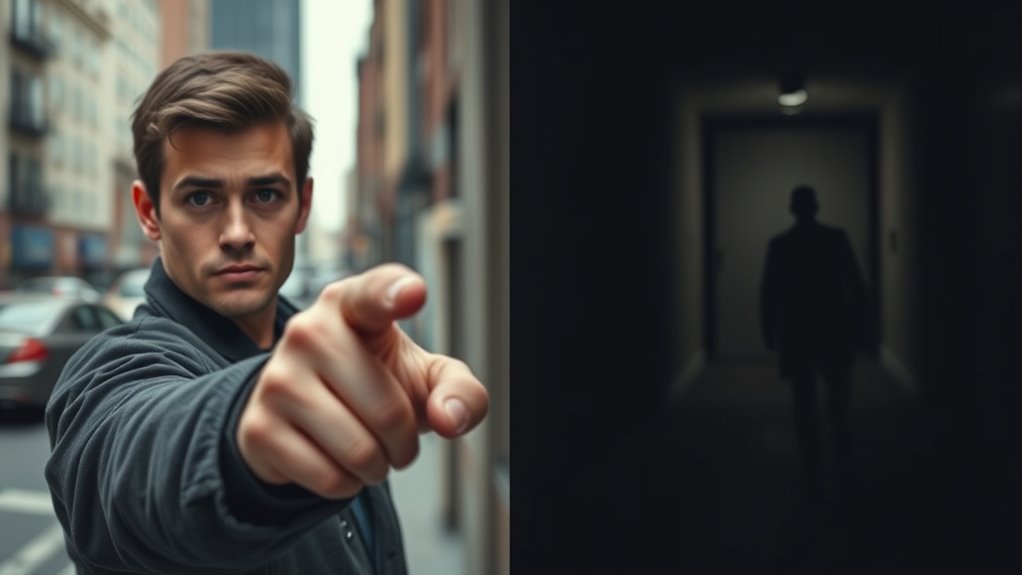Eyewitness confidence can be misleading when it comes to accuracy. Just because someone feels sure about their recollection doesn’t mean it’s right. Stress, emotional states, and biases can distort memories over time. This mismatch often leads jurors to give too much weight to confident testimonies, risking wrongful convictions. Understanding these dynamics is vital for fair outcomes in court. Explore how this phenomenon impacts legal decisions and what strategies can improve eyewitness reliability.
Key Takeaways
- High confidence in eyewitness testimony often does not correlate with actual accuracy, leading to potential wrongful convictions.
- Memory is malleable, and emotional states during events can distort recall, impacting confidence and accuracy.
- Jurors may misinterpret confident testimonies as reliable, ignoring inconsistencies that could indicate inaccuracies.
- Cognitive biases, such as the halo effect, can further skew juror perceptions of eyewitness reliability based on confidence alone.
- Training jurors about the limitations of confidence and memory can help mitigate the mismatch between eyewitness confidence and accuracy.
The Role of Eyewitness Testimony in the Legal System
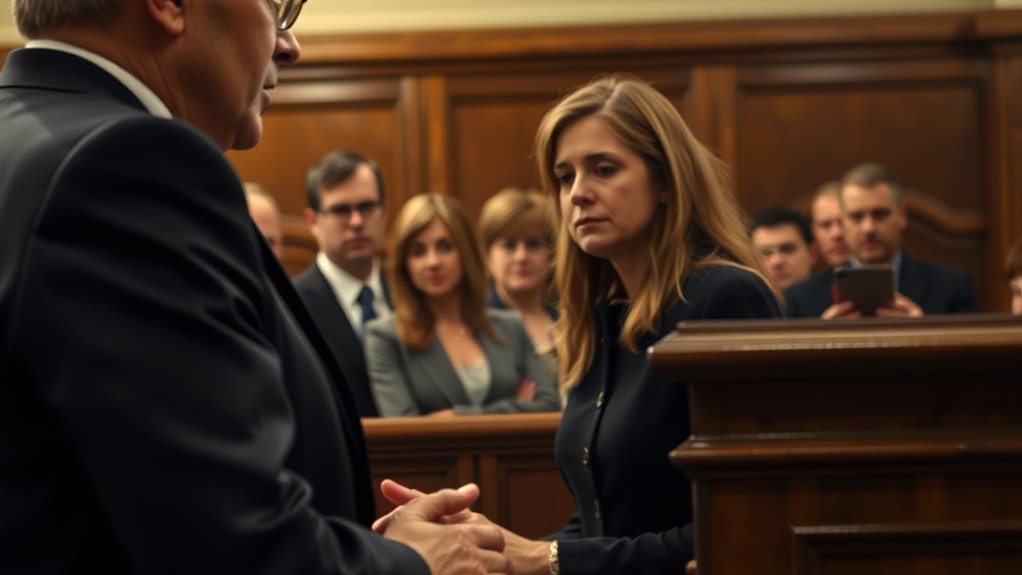
Although eyewitness testimony can be compelling, it plays a complex role in the legal system. You might think that a witness’s account is straightforward, but factors like eyewitness aging can considerably impact the reliability of their memories. As people age, their ability to accurately recall details may diminish, leading to potential inaccuracies in what they report. Additionally, memory encoding—the process of transforming information into a memory—can vary greatly among individuals. If a witness’s memory isn’t encoded effectively at the moment of an incident, their recollection may be flawed later on. This means that while eyewitnesses can provide vital information, their testimonies can sometimes be misleading, raising questions about their effectiveness in ensuring justice. Furthermore, mandatory mediation in some states can highlight the importance of corroborating evidence alongside eyewitness accounts. Incorporating creative expression into legal processes could help in understanding the nuances of eyewitness testimony more effectively. Regular dental check-ups can also serve as a reminder of the importance of accuracy and routine in memory retention. Moreover, the use of AI technology in the legal field may enhance the trustworthiness of evidence, providing additional tools to evaluate the reliability of eyewitness accounts. Additionally, the concept of electric power generation can serve as a metaphor, illustrating how the energy and effort put into recalling memories can significantly influence their clarity and accuracy.
Understanding Eyewitness Memory
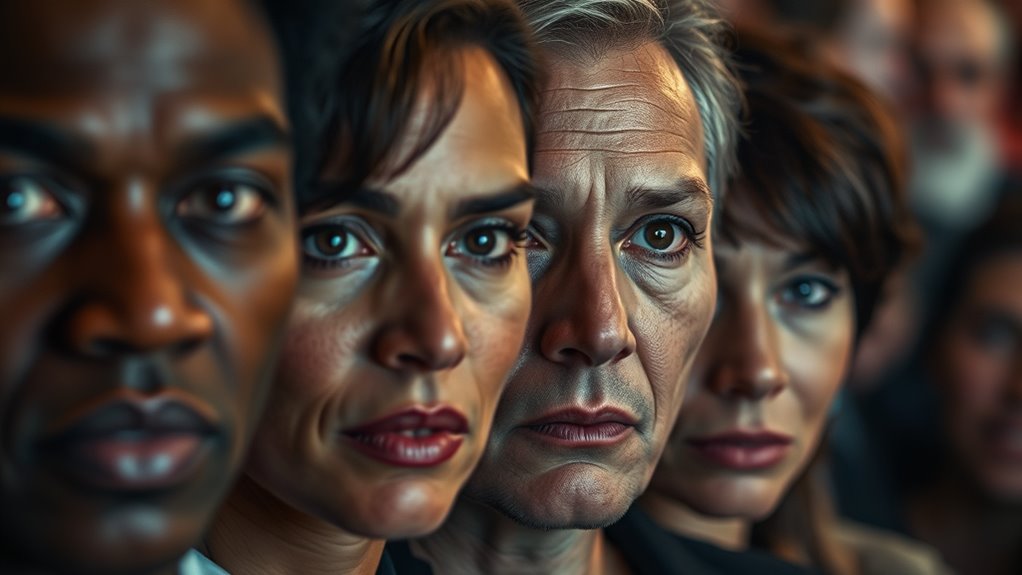
When you consider the reliability of eyewitness accounts, it’s essential to understand how memory works. Your memory isn’t a perfect recording; it’s subject to decay over time. This means details can fade or become distorted, making it challenging to recall events accurately, especially under stress. Confidence calibration plays a vital role here. Just because you feel certain about a detail doesn’t mean it’s correct. High confidence often misleads you into believing your memory is flawless, even when it’s not. This discrepancy between what you remember and how confident you feel can lead to significant errors in testimony. By recognizing these factors, you can appreciate the complexities of eyewitness memory and its implications in the legal system. Additionally, the impact of intelligent tutoring systems in education highlights how tailored feedback can enhance learning, similar to how understanding memory can improve eyewitness reliability. Furthermore, the psychological complexities of narcissistic behavior can also influence how individuals perceive and recall events, potentially skewing their testimonies. Engaging in aquatic exercise can also help improve mental clarity and focus, which may aid in better memory retention. Moreover, understanding the effects of high suction power in vacuums can serve as a reminder of how seemingly minor details can significantly influence overall performance, much like the nuances in eyewitness testimonies. The importance of using the right oil for airless sprayers illustrates how vital details can impact the overall functionality, akin to how precise memory details affect eyewitness accuracy.
Factors Influencing Eyewitness Confidence
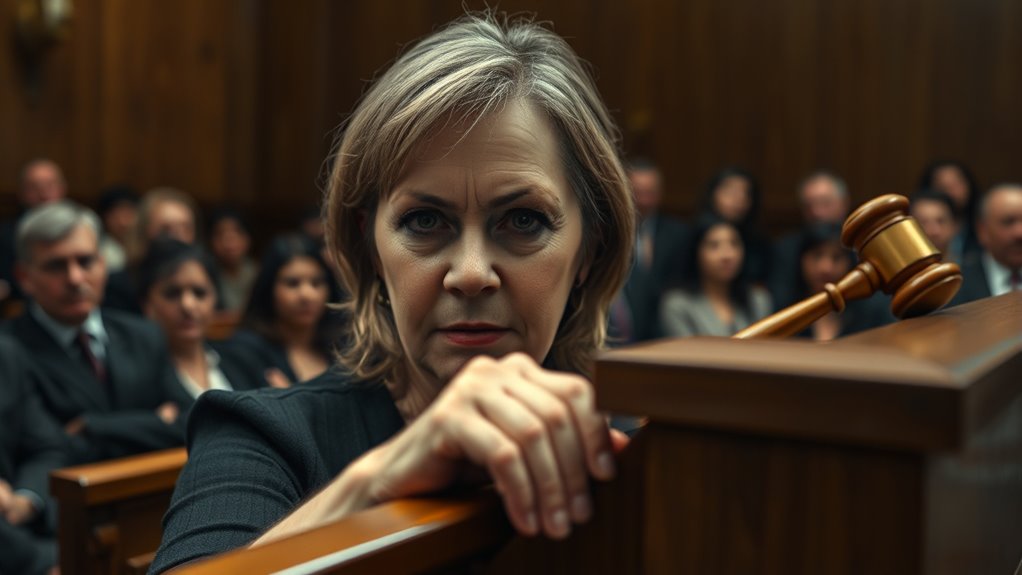
While various factors shape your confidence as an eyewitness, the context of the event plays a crucial role. When you witness a crime or accident, your emotional state can considerably influence your recollection and visual confidence. For instance, if you’re scared or stressed, your ability to accurately remember details may decline, even as your confidence in those memories increases. This emotional influence can create a disconnect between how sure you feel and how accurate your memories actually are. Additionally, external factors like leading questions or discussions with other witnesses can further distort your perceptions. Understanding these influences helps clarify why your confidence might not always align with the accuracy of your eyewitness testimony. Furthermore, like the integration of AI in mobile devices, advancements in technology could potentially support more reliable eyewitness accounts through enhanced data collection and analysis. Moreover, factors such as the emotional state of the eyewitness can significantly impact both their confidence levels and the accuracy of their recollections. It is also important to recognize that gaslighting tactics can affect an individual’s perception of events, leading to further discrepancies between confidence and accuracy. Additionally, high-pressure sales tactics can distort a witness’s confidence by creating a sense of urgency or fear, further complicating their ability to recall events accurately. In some cases, the way people process information can be compared to unique beetroot recipes that encourage exploration and enjoyment, highlighting the variability in how memories are formed and recalled.
The Psychology Behind Memory Recall
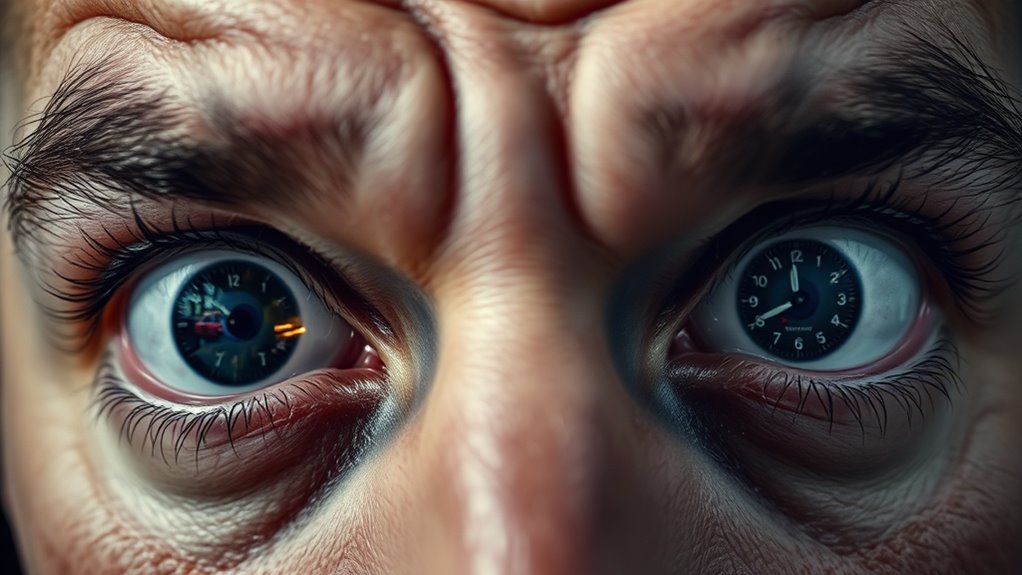
Memory recall is a complex process shaped by various psychological factors that can affect how you remember events. One key aspect is emotional influence; strong emotions tied to an experience can enhance your memory, making it more vivid but potentially less accurate. When you feel fear, joy, or anger, your brain prioritizes those feelings, which can distort details. Additionally, visualization techniques can aid your memory. By picturing the event in your mind, you create mental images that reinforce your recall. However, relying too much on these techniques may lead to false memories, as your brain might fill in gaps with imagined details. Understanding these factors can help you navigate the complexities of memory and its reliability in eyewitness situations. Moreover, the concept of portable camping toilets highlights how comfort and convenience can influence one’s overall experience during stressful events, potentially affecting memory recall.
The Illusion of Confidence: Case Studies

Although eyewitnesses often express high confidence in their recollections, research reveals that this confidence doesn’t always correlate with accuracy. Take, for example, the case of a robbery where a witness confidently identified the wrong suspect. Despite their strong belief in their memory, it turned out that memory distortion had altered the details they recalled. This confidence illusion can lead to wrongful convictions, as jurors might place undue weight on a witness’s certainty. Another case involved a car accident, where multiple witnesses provided conflicting accounts, each with unwavering confidence. These examples illustrate how, despite high confidence, eyewitness recollections can be unreliable, highlighting the need for caution when evaluating eyewitness testimony in legal contexts. Furthermore, cultural narratives in films can shape how witnesses perceive and recall events, potentially influencing their testimony. In fact, the celebrity relationships portrayed in movies often contribute to unrealistic expectations of memory and accuracy in real-life situations. Additionally, the role of color accuracy in visual media can affect how events are remembered, as vivid and accurate representations may create more lasting impressions on viewers. The tendency for individuals to trust their memory distortions can exacerbate the challenges faced in accurately assessing eyewitness accounts. Moreover, the importance of open communication about feelings can be crucial in helping witnesses process traumatic events, potentially impacting their recollection.
Implications for Juror Decision-Making
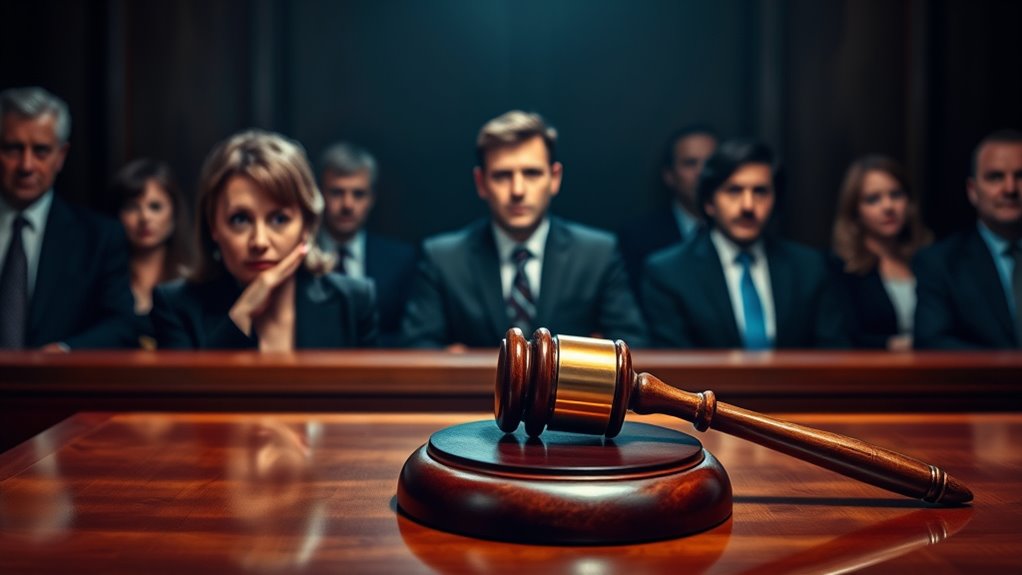
When you’re serving as a juror, the confidence expressed by an eyewitness can heavily influence your perception of their reliability. This confidence can shape your verdict, often leading to biases in your deliberation process. Understanding how this dynamic plays out is essential for ensuring fair outcomes in trials. Additionally, jurors should be made aware of the potential for overheating risks that can arise from misinterpretation of eyewitness accounts, similar to how modern technology minimizes risks in heated mattress pads.
Juror Perception of Confidence
Jurors often rely on witness confidence as a key indicator of reliability, which can substantially influence their decision-making process. This reliance often leads to perception biases, where jurors mistakenly equate high confidence with accuracy. When a witness displays strong confidence heuristics, jurors may overlook inconsistencies or weaknesses in the testimony. You might find that jurors, influenced by these biases, give more weight to confident witnesses, potentially skewing the trial’s outcome. This can create a misalignment between a witness’s confidence and actual accuracy, complicating your understanding of the evidence. Thus, it’s essential to recognize how these dynamics affect jurors’ perceptions and the importance of educating them about the potential pitfalls associated with confidence in eyewitness testimony.
Impact on Verdict Outcomes
Given the strong correlation between witness confidence and juror perceptions, it’s essential to understand how this dynamic can directly impact verdict outcomes. When jurors perceive a confident eyewitness, they may overlook factors like memory decay, which can distort the reliability of that testimony. This miscalibration of confidence leads jurors to assign undue weight to a witness’s statements, often swaying their decisions. If jurors don’t recognize that confidence doesn’t always equate to accuracy, they may convict based on flawed evidence. Effective confidence calibration is fundamental in helping jurors grasp the limitations of eyewitness accounts. Ultimately, a clearer understanding of these issues can lead to more informed verdicts, ensuring justice is served while minimizing the risks of wrongful convictions.
Cognitive Bias in Deliberation
Although jurors endeavor to remain impartial, cognitive biases can considerably influence their deliberation processes, often leading to flawed decision-making. Heuristic biases, like reliance on mental shortcuts or stereotypes, can distort how jurors interpret evidence. For instance, if a juror feels a witness is confident, they might overlook inconsistencies in the testimony, influenced by the halo effect. Additionally, confirmation effects can cause jurors to focus on information that supports their pre-existing beliefs, while dismissing contradictory evidence. This selective processing can skew the overall evaluation of a case. Recognizing these biases is essential for jurors to reach fair verdicts, highlighting the need for awareness and training in cognitive influences during jury deliberations.
Strategies for Improving Eyewitness Reliability

Improving eyewitness reliability is essential for ensuring justice, especially since memory can be surprisingly malleable. To enhance the accuracy of eyewitness accounts, consider implementing the following strategies:
- Memory enhancement techniques: Use cognitive interviewing methods to help witnesses recall details without leading them.
- Confidence calibration: Provide feedback on their performance to align their confidence levels with actual accuracy, helping them understand their limitations.
- Sequential lineups: Present suspects one at a time rather than all at once, which reduces the chances of misidentification.
Legal Reforms and the Future of Eyewitness Testimony
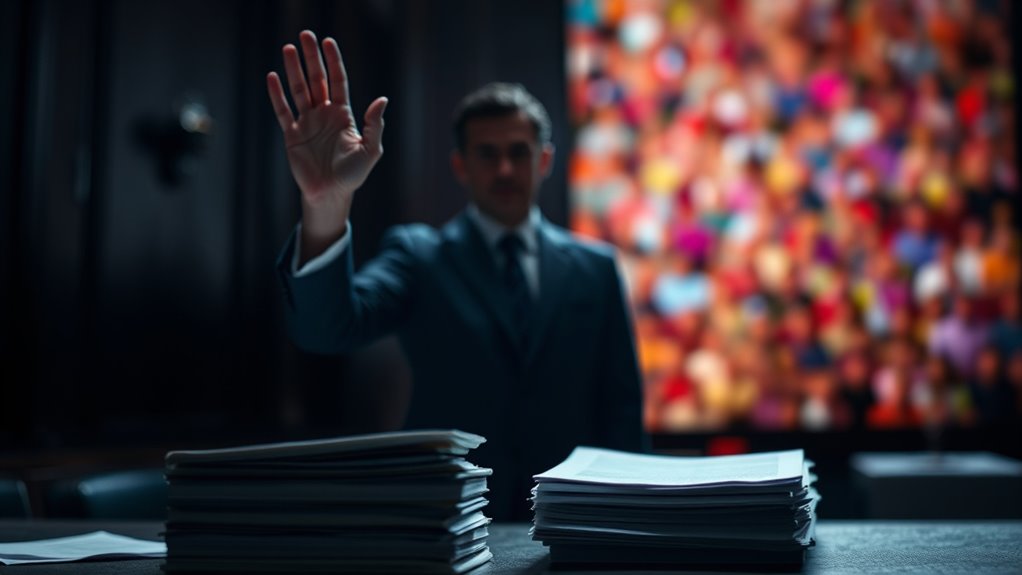
As efforts to enhance eyewitness reliability gain traction, discussions around legal reforms are becoming increasingly important. You’ll want to consider how new laws can address the prevalence of false memories in witness accounts. Implementing stricter guidelines for lineups and witness interviews can minimize suggestive practices that lead to inaccuracies. furthermore, integrating expert testimony into the courtroom can help juries understand the complexities of memory recall. By educating legal professionals about the risks associated with eyewitness testimony, you can foster a more informed judicial process. These reforms aim to bridge the gap between confidence and accuracy, ensuring that justice isn’t compromised by unreliable witness accounts. The future of eyewitness testimony relies heavily on these necessary legal changes.
Conclusion: Bridging the Gap Between Confidence and Accuracy

While eyewitness testimony remains a critical component of the legal system, bridging the gap between witness confidence and actual accuracy is essential for delivering justice. To achieve this, you can focus on several strategies that enhance both confidence calibration and accuracy enhancement:
Eyewitness testimony is vital, yet aligning confidence with accuracy is crucial for true justice.
- Implement training programs for law enforcement to improve questioning techniques.
- Use technology, like video recordings, to capture eyewitness accounts for better analysis.
- Foster a culture of skepticism, encouraging juries to critically evaluate eyewitness confidence.
Frequently Asked Questions
How Can Eyewitness Inaccuracies Impact Wrongful Convictions?
Eyewitness inaccuracies can lead to wrongful convictions by distorting the truth of events. When you experience high stress during a crime, your memory may decay, making it harder to recall details accurately. This can result in misidentifications or faulty testimonies. If you’re confident in your memory despite its flaws, you might unknowingly contribute to a miscarriage of justice, impacting not just the accused but also the integrity of the legal system.
Are Certain Individuals More Prone to Memory Distortions?
You might find that some individuals, due to their unique mindsets, are more susceptible to memory distortions. These memory biases and cognitive distortions can twist what they recall, making their memories less reliable. Factors like stress, suggestive questioning, and personal beliefs can all play a role. If you’re aware of these influences, you can better understand how memory isn’t always a faithful recorder of truth, but rather a malleable narrative shaped by experience.
What Role Do Police Procedures Play in Eyewitness Testimony?
Police procedures play a vital role in shaping eyewitness testimony. Effective police interview techniques can help you recall details more accurately, while poor methods might lead to confusion or memory distortions. Additionally, evidence collection methods influence what you remember, as the context and environment can affect your recall. When procedures are systematic and respectful, they enhance the reliability of your testimony, making it more valuable in the investigative process.
Can Eyewitness Confidence Be Influenced by Leading Questions?
Yes, eyewitness confidence can definitely be influenced by leading questions. When you’re asked suggestive questions, it can lead to memory manipulation, altering how you recall events. This can create a confidence bias, making you believe you’re more certain about your memories than you actually are. Your recollection may become skewed, leading you to confidently assert details that aren’t accurate. It’s essential to recognize how easily confidence can be swayed by the way questions are framed.
How Do Cultural Differences Affect Eyewitness Memory Recall?
Cultural differences can considerably affect your eyewitness memory recall. Cross-cultural perception influences how you interpret events, and varying cultural backgrounds may lead to different emphases on details. Language barriers can further complicate your ability to convey your memories accurately. If you struggle to find the right words or phrases, important nuances might get lost. Ultimately, these factors can shape not just what you remember, but how you express those memories in critical situations.
Conclusion
In the courtroom, confidence can shine like a beacon, but it often casts shadows over truth. As you navigate the complexities of eyewitness testimony, remember that a bright light doesn’t always illuminate reality. By embracing reforms and understanding the mind’s quirks, you can help bridge the gap between what feels true and what is true. Just as a compass guides a traveler, let knowledge steer you toward justice, ensuring that accuracy reigns supreme in the quest for truth.
